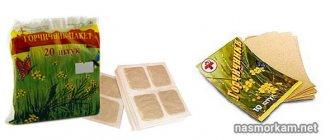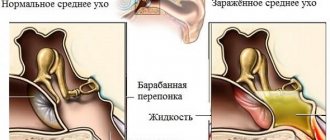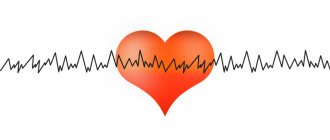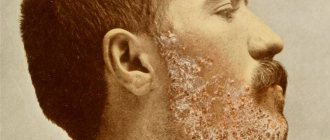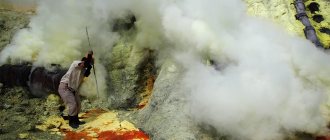Getting rid of chronic bronchitis with medications
You should be aware of one fact: colds often provoke chronic bronchitis. Therefore, similar symptoms of both diseases, such as coughing, nasal congestion and sneezing, should be eliminated in any case. There are many medications that help get rid of chronic bronchitis.
Since colds and chronic bronchitis have the same initial symptoms, you should not be inattentive. If the usual methods of treatment do not help, the temperature, even the smallest, lasts for a long time, and the symptoms do not go away, then we are talking about chronic bronchitis, and not a cold. To effectively eliminate the disease, it is better to consult a doctor.
You can identify chronic bronchitis by the following signs:
- Fever.
- Blood in the sputum.
- Cough lasting more than a month.
- Frequent sweating and weakness.
- Labored breathing.
The doctor will help identify effective treatment based on the tests that were obtained. There is no need to be treated according to the principle “others got rid of bronchitis using such and such medications.” You should remember about the different causes of chronic bronchitis, which need to be treated, in addition to the main symptoms.
Since bronchitis is often caused by viruses or bacteria, treatment is antibacterial, antiviral and anti-inflammatory. The combination and dosage of medications is prescribed by the doctor. The following medications can be used here: Macropen, Augmentin, Azithromycin, Fromilid, Rovamycin. In addition to penicillins, cephalosporic antibiotics become effective:
- Cefazolin.
- Levofloxacin.
- Ceftriaxone.
- Claforan.
- Suprax.
For acute bronchitis, these medications are used in the form of tablets, suspensions or syrups, and for chronic bronchitis - injections.
Viral infections are treated with other drugs that are prescribed for no more than 10 days: Viferon and Genferon.
Another focus of drug treatment is symptom management. The main thing that worries a patient with chronic bronchitis is sputum and narrowed bronchi. Here are the medications prescribed:
- Mucolytic and expectorant to remove mucus:
- Bromhexine.
- ACC.
- Lazolvan.
- Mukaltin.
- Bronchodilators:
- Eufillin.
- Inhalers or nebulizers filled with special solutions: Teopek, Salbutamol, Berodual.
- Terbutaline.
- Bromide.
- Fenoterol.
Another direction in the treatment of chronic bronchitis is halotherapy. The patient is placed in a special chamber where ideal climatic conditions are created:
- Air filled with salt-based aerosol substances.
- Optimal temperature.
- Purified air and ideal humidity ratio.
Halotherapy does not require drug intervention and is the most acceptable form of treatment for chronic bronchitis. In mild forms, chronic bronchitis can be completely cured by 100%, and severe forms of the disease can recede for a while, improving health. The duration of such therapy is up to 1 month at certain intervals.
Treatment of chronic bronchitis should be continuous. It should be combined with folk remedies, where the main emphasis can be placed on a special complete diet that allows you to replenish the body with vitamins C, B, A.
go to top
How is acute bronchitis treated?
If the course of acute bronchitis is mild or moderately severe, treatment for adults is possible at home. In case of fever, it is necessary to visit the clinic or call a doctor at home every three days.
It is necessary to treat the disease with medications prescribed by a doctor. You will have to take a lot of them:
- an antibiotic (from the groups Penicillins, Macrolides, Tetracyclines and others) or an antiviral agent (interferon-containing or herbal) to eliminate the source of infection;
- anti-inflammatory drugs (Erespal);
- cough medications and expectorants (Abrol, Ambroxol, Pectolvan S, ACC, Mucaltin);
- means to reduce fever (Analgin, Paracetamol, Ibuprofen);
- immunity-boosting drugs (vitamins and immunostimulants).
If not only the bronchi are inflamed, but also the throat or larynx, and this happens often, it will be necessary to treat them as well.
In addition to pharmaceutical products, it is recommended to use folk remedies at home. Most of them have proven effectiveness and, if they do not treat bronchitis itself, they help alleviate its symptoms, increase the patient’s body’s resistance and significantly improve his well-being.
Eliminating chronic bronchitis with folk remedies
Our grandmothers were treated with folk remedies, since in those days medicine was not perfect. Since those centuries, there have been various recipes for folk mixtures that should help eliminate chronic bronchitis. Let's consider the main directions that the patient can use.
Drink plenty of warm water. Here you can use special teas or herbal infusions. Infusions from:
- Linden color.
- Sage.
- Daisies.
- Calendula.
- Mint.
Pour any of the herbs with 2 cups of boiling water, bring to a boil, then leave for 1 hour. Strain the broth and then consume ½ cup per day.
The following recipe can be a soothing and expectorant medicine:
- Dill seeds, licorice root, anise fruits, thyme herb, pine buds are taken on a teaspoon and mixed.
- Two tablespoons of the resulting mixture are poured with 2 cups of boiling water, then left for 20 minutes.
- Strain and take half a glass 3 times a day before meals.
Other folk remedies are animals and plants:
- Badger fat or lard, taken 2-3 tbsp. l. per day or mixed with honey and then rubbed into the chest.
- Honey, beebread, propolis help in softening and removing phlegm. 1 tbsp. l. The product is mixed with 1 glass of warm milk and a pinch of soda.
- Aloe juice, which is taken from leaves that are already several years old. Mix with a glass of honey and water. Cook this mixture over low heat for 2 hours, then cool and take a tablespoon 3 times a day.
It should be remembered that the body is weak during illness. You should sleep a lot, rest, do not overexert yourself with excessive physical activity, and also give up bad habits that aggravate the condition.
Nutrition for chronic bronchitis is also prescribed to speed up the healing process:
- Avoid spicy, hot and salty foods.
- Drink plenty of liquid, 3 liters per day.
- Eat in small pieces so as not to damage your throat.
- Include foods rich in vitamins and proteins.
- Fast if you have a high temperature.
The following methods of traditional treatment are:
- Gymnastics Strelnikova.
- Inhalations based on herbs and mineral water.
- Rubbing with various oils.
- Massage various parts of the body, especially the nose, nasolabial triangle, chest.
- Warming up, which should be done under the guidance of a doctor.
- Medical jars and mustard plasters.
The best treatment method is prevention, which will allow you not only to avoid getting sick, but also to recover quickly. It includes the following procedures:
- Get vaccinated (especially for children), which is done annually. It will help avoid illness in any form.
- To refuse from bad habits.
- Inhale mountain or sea air.
- Eat properly.
- Take restorative decoctions and infusions.
- Don't get too cold.
- To walk outside.
- Exercise.
- Support immunity.
- Do not contact sick people.
- Do not stay in a room with high humidity for a long time.
- Wear a protective mask and change it regularly.
go to top
Why are antiviral drugs needed for bronchitis?
Acute viral bronchitis can go away without special treatment. Most patients only need to adhere to semi-bed rest, drink plenty of fluids and be in a comfortable environment (with a temperature of 18-21 ° C and air humidity of about 55%). But if the body is weakened, ordinary bronchitis can lead to unpleasant complications:
- pneumonia;
- bronchiolitis;
- chronic bronchitis;
- bronchiectasis;
- infection of the membranes of the heart, endocarditis, myocarditis or pericarditis;
- kidney inflammation;
- generalized vasculitis (inflammation of the membranes of blood vessels).
The risk of complications increases with improper treatment and non-compliance with doctor's recommendations. Also, negative consequences of bronchitis can occur in patients:
- old age;
- with respiratory diseases (especially hereditary);
- with pathologies of internal organs;
- with improper functioning of the immune system;
- with nicotine addiction and other bad habits;
- under the influence of unfavorable external factors (climatic and occupational).
Antiviral drugs for bronchitis in adults, when used correctly, help speed up recovery, alleviate negative symptoms and reduce the incidence of complications.
Photo: MAXSHOT-PL / Shutterstock.com
Forecast
Chronic bronchitis cannot be called a fatal disease, but it creates a lot of discomfort, reduces the quality of life and leads to complications that can already affect life expectancy. The prognosis worsens as a person delays his own treatment. It is better to treat acute bronchitis, otherwise it will become chronic. It is better to treat chronic bronchitis so that it does not cause inflammatory diseases in the lungs.
Doctors have many ways to treat chronic bronchitis, which allows you to quickly and permanently get rid of it.
Prevalence of bronchitis and pathogens
Acute bronchitis is more often detected in men under 40 years of age. The disease affects about 5% of adults per year, with most episodes occurring in winter and autumn. Bronchitis often becomes the reason for seeking medical help; adequate treatment helps to recover quickly and avoid complications.
Image: Victor Josan / Shutterstock.com
In adults, acute inflammation of the bronchial mucosa most often occurs due to aggression:
- adenoviruses;
- coronaviruses;
- Coxsackie virus;
- enteroviruses;
- pathogens of influenza and parainfluenza;
- respiratory syncytial virus;
- rhinovirus.
Respiratory syncytial virus often leads to severe disease in elderly patients. Only in 10% of cases acute bronchitis is of bacterial or mixed origin. In the latter version, the disease is provoked by both a virus and a bacterium.
Breathing exercises
There are many breathing exercises for such pathologies. Your doctor will help you choose the right one.
Any set of exercises prioritizes transformations in the functioning of organs due to the impact on the respiratory system and promotes the growth of reserves of the respiratory system. The most important thing in such cases is to remember that it is necessary to conduct classes in the fresh air, which in itself will already have a positive effect on the condition of the respiratory system.
How to remove symptoms of the disease with compresses, rubbing and lotions
The goal of this treatment is to create deep, penetrating heat. After all, at home there are no physiotherapy devices that official medicine has, so people have come up with their own methods of deep warming. Usually the heat is applied to the back in the lung area. If necessary, you can place a warm compress on your chest, avoiding the heart area.
To treat inflammation of the bronchial tree, the following recipes for compresses and rubs are used:
- A flatbread is prepared from grated black radish, flour, dry mustard, honey and vegetable oil in equal parts. Wrap the resulting mixture in parchment, heat it in the oven, place it on the lung area and wrap the patient. It is very good to treat inflammation of the bronchial mucosa in this way: the mucus thins out and is easier to cough up.
- Cut round rye bread along the side rib, heat it in the oven, wrap it in a cotton towel and apply it to your back. The bread warms for a long time and well. The patient lies wrapped in a blanket. This heating compress is great for coughs.
- A hot cake is made from internal pork fat or badger fat, honey and turpentine, wrapped in gauze and parchment, and placed on the area of the lungs and bronchi. Wrap the patient in a blanket. Keep the cake until it cools. As a rule, after three such procedures the main symptoms begin to go away: breathing becomes easier, coughing attacks do not occur as often.
- Boil the washed potatoes in their skins. Pound it until soft after boiling, drop a few drops of turpentine on it, form a cake, which is then wrapped in cheesecloth. Treat by applying a compress to the patient's back. After this, he lies under the blanket until he feels the warmth from the cake. It should be taken into account that this is a wet compress, so after the cake has cooled, the patient’s back should be wiped dry with a towel and wrapped in a blanket again.
It is important to remember that treating the disease using cough compresses with alcohol is only possible for adults.
Lifestyle and regime
One of the main conditions for recovery will be the creation of the most favorable environment for the natural restoration of the respiratory system.
The room where the patient is located must have moist air. In addition, he must be provided with plenty of fluids. You can drink everything except soda. Already these two factors will create a favorable atmosphere so that the process of sputum separation begins and the dry cough is overcome.
In addition, in the first three days, the patient is contraindicated in physical activity; he must remain in bed. You should quit smoking completely. Short walks are possible only after a few days, when there is improvement.
The effectiveness of traditional medicine
The effectiveness of treatment of bronchitis depends on an integrated approach to it. Since obstruction is only a companion to other diseases (ARVI, allergies), we must not forget about the cause of the disease. It must be treated together with obstructive bronchitis.
To begin with, the patient must create the appropriate conditions:
Folk remedies do not replace drug treatment
- room temperature – no higher than 21 degrees;
- humidity – not lower than 60-70%.
If the air is dry and warm, the treatment will be less effective.
It is unlikely that it will be possible to treat bronchitis complicated by obstruction exclusively with folk remedies. They can act as assistants to traditional medicine, accelerating recovery. The course of treatment is prescribed by a doctor, with whom you should discuss the inclusion of traditional medicine:
- infusions and decoctions;
- rubbing.
Expectorants
At the very beginning, bronchitis is always accompanied by a dry and severe cough. Therefore, the only group of drugs that is indispensable for this disease are expectorants. There are two types of such drugs: to thin sputum and to stimulate expectoration.
Drugs to stimulate expectoration have a targeted effect on irritation of the gastric mucosa. Due to this, increased work of the vomiting and cough centers of the brain is provoked. The consequence is an increase in the production of liquid secretion in the bronchi and increased cough reflexes.
Medicines that thin sputum are also called mucolytics. They achieve their effect by breaking disulfide bonds in acidic mucopolysaccharides. The key prerequisite for their use is viscous sputum, which is produced in diseases of the respiratory tract, including during bronchitis. The most popular products of this type include Bromhexine, Ambroxol, Trypsin, and Doctor Mom.

